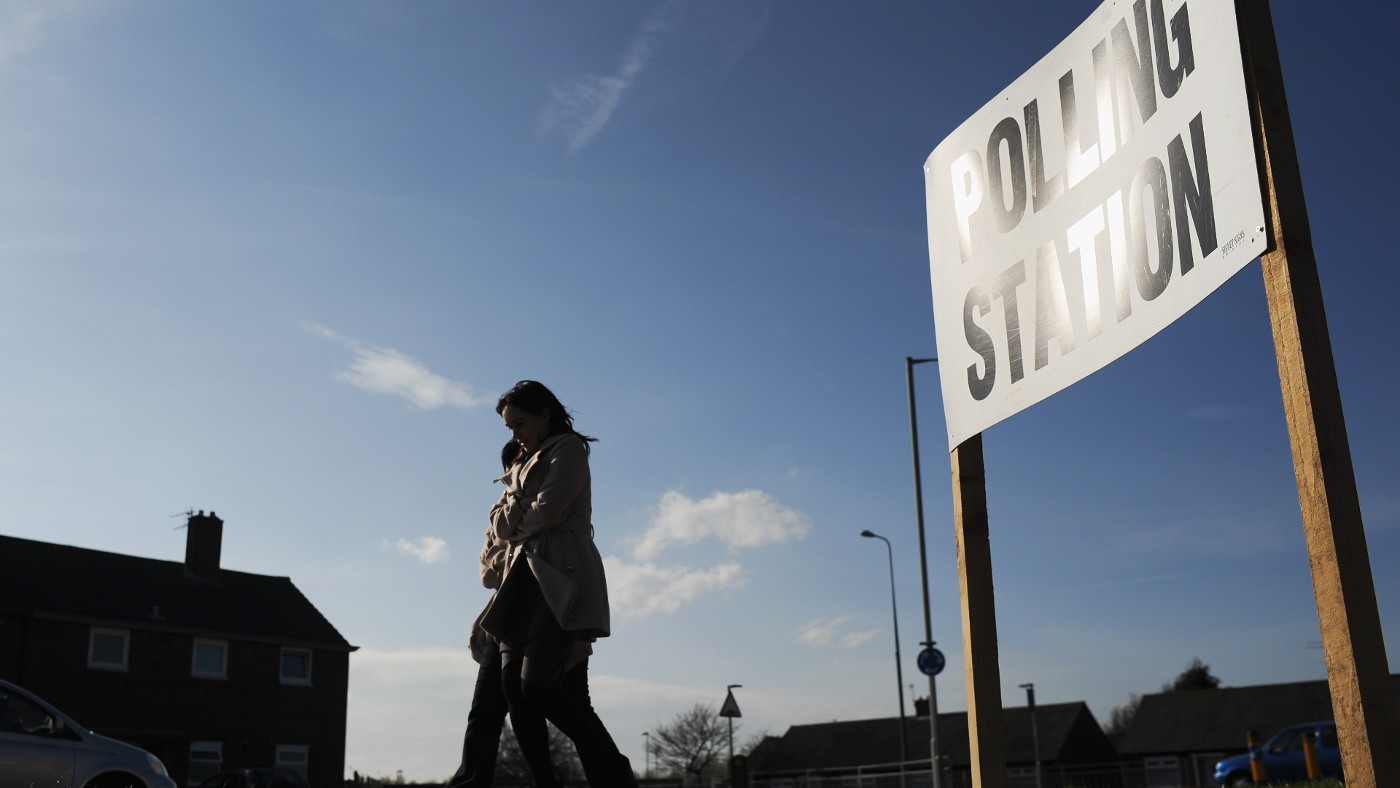Pros and cons of political polling
Gauging public opinion through polls can help combat elitism but carries inaccuracy risks

A free daily email with the biggest news stories of the day – and the best features from TheWeek.com
You are now subscribed
Your newsletter sign-up was successful
The accuracy of political opinion polling is being hotly debated as US voters prepare to go to the ballot boxes.
Wildly differing polling results ahead of next week’s US midterms mean that “everything from a Democratic hold in the Senate and a narrow House majority to a total Republican rout” is “imaginable”, said The New York Times’s chief political analyst Nate Cohn.
Pollsters in the US have faced widespread criticism in recent years, after calling the 2016 presidential election wrongly for Hillary Clinton, before underestimating support for Donald Trump once again in 2020. And while UK polling this summer suggested that Rishi Sunak stood no chance against Liz Truss in the Tory leadership race, the result ended up being much closer than expected.
The Week
Escape your echo chamber. Get the facts behind the news, plus analysis from multiple perspectives.

Sign up for The Week's Free Newsletters
From our morning news briefing to a weekly Good News Newsletter, get the best of The Week delivered directly to your inbox.
From our morning news briefing to a weekly Good News Newsletter, get the best of The Week delivered directly to your inbox.
Similar polling inaccuracies in countries worldwide have fuelled debate about whether a new approach to both gauging and reporting public opinion is needed. And what could happen if opinion polls during election periods were banned?
1. Pro: better gauge than social media
Polling is “the most effective way of obtaining voters’ opinions or concerns on key issues or voting intention”, according to Jouni Kuha, a professor in LSE’s Department of Statistics. Although other sources of data such as social media can “provide some insight to decode voters’ behaviours”, they are “unlikely to be as good a source for predicting voter intention or election outcomes”, Kuha wrote.
2. Con: inaccurate results
Polls in the UK have a “history of inaccurate performance”, wrote Nate Silver for FiveThirtyEight, with average errors that are more than double those in American presidential elections. For instance, explained Roosmarijn De Geus for OxPol, in 1992, “the polls predicted a Labour lead only for the Conservatives to win a majority at election day”. In 2010, polls drastically over-estimated the popularity of the Liberal Democrats, and in 2015 polls overestimated support for Labour and underestimated support for the Tories.
3. Pro: reduces elitism
Without opinion polls, the discourse in the run-up to elections would be dominated by an elite of pundits and journalists, whose predictions and commentary could be at least as flawed as that of any snapshots of wider public sentiment. Polling “gives the people a chance to speak for themselves instead of letting only vocal media stars speak on behalf of all”, said pollsters Gallup and “gives people who do not usually have access to the media an opportunity to be heard”.
A free daily email with the biggest news stories of the day – and the best features from TheWeek.com
4. Con: risk of leading questions
In the British political drama To Play The King, an opinion pollster called Sarah Harding is challenged by a politician named Tim Stamper. “You get the answers wrong, don’t you?” he says. She replies “I can get you any answers you like, Mr Stamper. That’s why I’m in such demand.” Concern over leading questions has long dogged the polling industry and was depicted humorously in the political comedy Yes, Prime Minister.
5. Pro: strategic voting aid
Surveys have been found to help bewildered voters hone their decision. Polls can “provide voters with valuable information that allows them to vote strategically, especially in primaries where you’re less likely to know a lot about the candidates”, wrote Maggie Koerth for FiveThirtyEight. For instance, if you are a Democratic primary voter in the US who likes two hopefuls, poll findings can help you decide “which of those two candidates is most likely to benefit from your vote”, argued Koerth.
6. Con: bandwagon effect
However, the above trend comes with obvious downsides. The “bandwagon effect” happens when people vote for the party they think is going to win, while the “boomerang effect” sees voters evaluate a party more negatively if a poll suggests their chances of winning are low. Either way, an opinion poll has influenced, as well as reflected, public opinion. “Some countries impose an election silence that halts polling because of a belief that the bandwagon effect tilts the democratic process,” wrote Mark Balnaves on The Conversation.
Chas Newkey-Burden has been part of The Week Digital team for more than a decade and a journalist for 25 years, starting out on the irreverent football weekly 90 Minutes, before moving to lifestyle magazines Loaded and Attitude. He was a columnist for The Big Issue and landed a world exclusive with David Beckham that became the weekly magazine’s bestselling issue. He now writes regularly for The Guardian, The Telegraph, The Independent, Metro, FourFourTwo and the i new site. He is also the author of a number of non-fiction books.